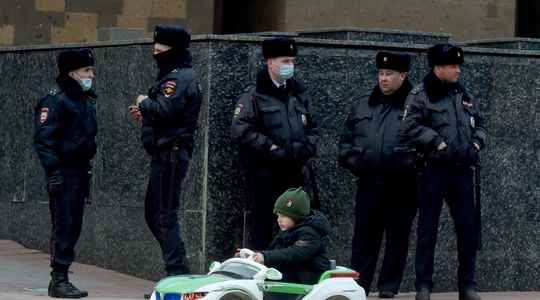On February 17, an explosive weapon hit a nursery school in Stanytsia Louhanska, in eastern Ukraine. This is the first Russian attack targeting civilians recorded by Amnesty International. The first of a now long list, in which the collapse of several apartments in Sartana on February 26 follows the destruction of a nursery in Okhtyrka two days earlier. Last recorded, Wednesday, March 9, the bombing of a pediatric hospital in Mariupol, which killed at least three people including a girl, particularly moved the international community.
Amnesty International specifies that “several attacks are being verified”. In Kiev, Kharkiv and Mariupol, the civilian losses seem so important that the human rights organization takes the time to investigate, in order to appear as credible as possible if Russia ever has to answer official accusations. of war crimes.
War, a codified custom
When Georges Clemenceau indicated that “war was too serious a matter to be entrusted to the military alone”, he defended a higher authority capable of politically framing a conflict. Article 8 of the Treaty of Rome, which entered into force in 2002, codified it morally, by drawing up an official list of acts prohibited in time of war. Among them, let us cite intentional homicide, torture, looting, deportation, hostage-taking, intentional direction of attacks against the civilian population… Facts reproached today to Russia by the Ukrainian president Volodymyr Zelensky.
War is a thousand-year-old custom and its framework is not born of the Treaty of Rome. But since the 20th century, international treaties have followed one another. The Hague Conventions of 1899 and 1907 prohibit the use of certain combat weapons and the Geneva Conventions protect people not taking part in the conflicts but suffering the consequences. “This definition can leave room for interpretation: the Russians consider that a resistant civilian is a belligerent. This is not new, the Nazis qualified the French resistance fighters as terrorists, de facto excluding them from the Geneva conventions”, explains at L’Express the geographer Jean-François Martin.
To broaden the categories of protection, the UN specifies that it is necessary to take into account the intention and the knowledge of the incriminated person in relation to his act and the context, that is to say to estimate the psychological element. If we take the latest example, the bombing of a pediatric hospital in Mariupol, the qualification of a war crime can be retained, since the medical staff and the patients are protected by the Geneva conventions as “non-belligerents”. and Russia fully aware of their status.
Supporting photos and videos, Amnesty International notably wants to show that Russian Defense Minister Sergei Shoigu is lying when he declares that his country only uses “precision-guided weapons”, while photos have immortalized the firing of Tochka 9M79 ballistic missiles, whose imprecision is such that they sometimes hit areas more than a kilometer from the targets. The proven use of thermobaric weapons is also prohibited by the Geneva conventions.
Can the International Criminal Court try Vladimir Putin?
“Russia is attacking civil society, which is why Spain and other countries support the investigation of the International Criminal Court so that these criminal acts do not go unpunished”, declared this Thursday the Prime Minister Spaniard, Pedro Sanchez, during a visit to a reception center for Ukrainian refugees near Madrid.
On March 2, the International Criminal Court (ICC) opened an investigation, at the request of the Ukrainian authorities, to shed light on these practices contrary to the law. “The bombing of a nuclear power plant already constitutes, in itself, a war crime”, notes Jean-François Martin. “In the end, proving is not so difficult, doing justice is much more so.”
In twenty years of existence, the ICC, which judges only natural persons, has only made ten convictions, while in 2014 alone, eighteen countries committed war crimes. “As long as the person in charge remains in power, judgment is almost impossible,” adds the geographer. And to specify the case of Bashar el-Assad, whose crimes have long been confirmed, without his person being worried.
While waiting for the long work of justice, the International Committee of the Red Cross is trying to urgently evacuate some 200,000 civilians trapped in the city of Mariupol. But the constant bombardments make the mission perilous, if not impossible. So, in a terse statement, and as if exasperated, she reminds the belligerents of a flouted duty, that of not forgetting “international humanitarian law”.
